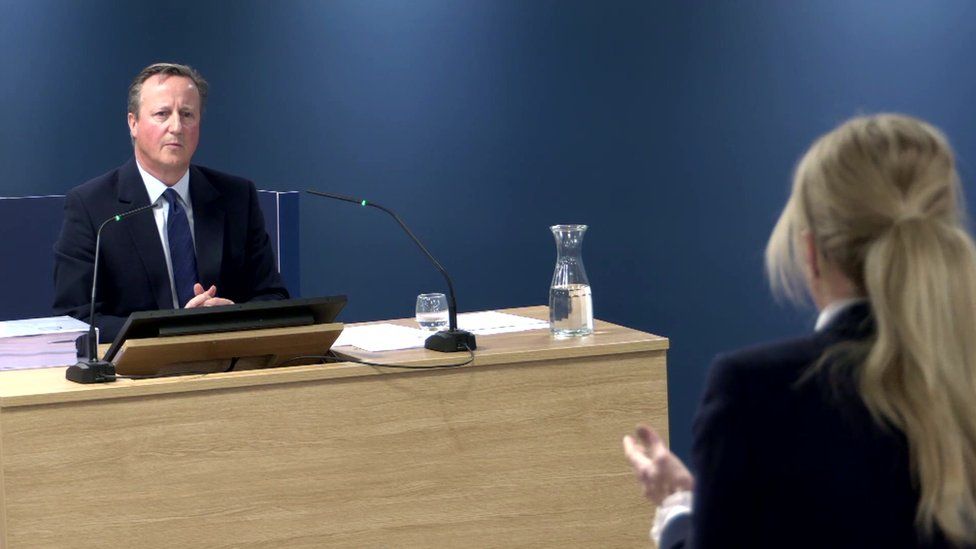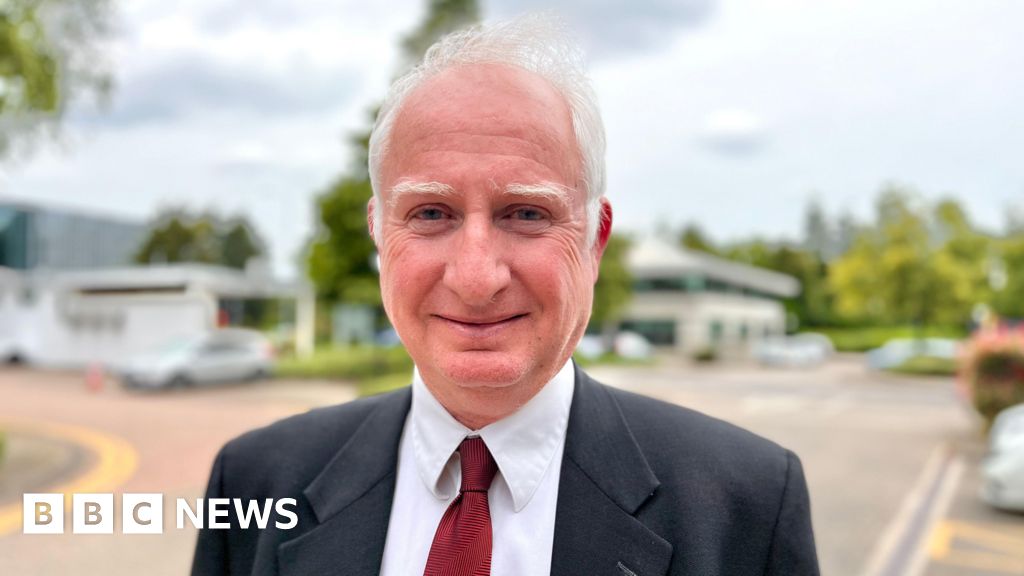ARTICLE AD BOX

By Kate Whannel
Political reporter, BBC News
Former Prime Minister David Cameron has said it was a "mistake" not to consider different types of diseases when preparing for future pandemics.
Giving evidence to the Covid Inquiry, Mr Cameron said "group think" meant his government did not focus enough on pandemics other than flu.
He also denied that his government's austerity policies damaged the UK's ability to cope with Covid.
The inquiry is currently considering preparedness ahead of the pandemic.
George Osborne and Jeremy Hunt, the chancellor and health secretary under Mr Cameron, will give evidence to the inquiry later this week.
Questioned by the inquiry's lawyer Kate Blackwell KC, Mr Cameron said: "Much more time was spent on pandemic flu and the dangers of pandemic flu rather than on potential pandemics of other, more respiratory diseases, like Covid turned out to be.
"This is so important - so many consequences followed from that."
The Conservative former leader said that on becoming prime minister he had sought to improve the UK's planning for risks by changing government structures, including by setting up a National Security Council.
However, he added that there was "always a danger of group think - perhaps that is what is happening here".
"I think the failing was not to ask more questions about asymptomatic transmission."
Mr Cameron was also asked about Exercise Alice - a hypothetical scenario exploring how government departments would cope with an outbreak of the Mers respiratory coronavirus.
He said a report following the exercise included useful suggestions on creating stockpiles of PPE (personal protective equipment) and added: "If you're asking does it look like failures to follow through from this I think there answer is yes."
During the hearing, Mr Cameron was pressed on whether his austerity policies hampered the UK's resilience when facing the pandemic.
Writing in a blog ahead of the hearing, British Medical Association council chairman Phil Banfield said politicians in Mr Cameron's government should be "taken to task over the decisions they made that left us so unprepared".
He argued that cuts to spending and a re-organisation of the NHS meant the health service did not have enough staff or beds.
And at a hearing held last week, Sir Michael Marmot, a professor of epidemiology at University College London told the inquiry that the UK had entered the coronavirus pandemic with "depleted" public services.
Mr Cameron said he didn't accept that description and defended the austerity drive overseen by his government.
Image source, Shutterstock
He said it was needed to get the public finances in order and without doing so there would have been less money for the NHS.
"Your health system is only as strong as your economy - one pays for the other."
He also pointed out that while other public services were cut, the NHS was actually protected by his government.
During his premiership, the NHS budget rose by an average of 1% to 2% after inflation.
However this compared to an average of 4% during the rest of the health service's history - so while the budget did rise it still represented a squeeze.
And it is a major reason why waiting times have worsened and the UK has fewer staff and beds per head than many other western European countries.
But what was not protected was other areas of health spending, such as training and public health.
However, it is worth noting the Conservatives were not alone in advocating this approach - at both the 2010 and 2015 elections Labour was not promising significantly more for the NHS.
What is the UK Covid-19 inquiry?
- It is about going through what happened and learning lessons
- No-one will be found guilty or innocent
- Any recommendations made do not have to be adopted by governments
- The inquiry has no formal deadline but is due to hold public hearings until 2026
- Scotland is holding a separate inquiry in addition to the wider UK one

 1 year ago
19
1 year ago
19








 English (US)
English (US)